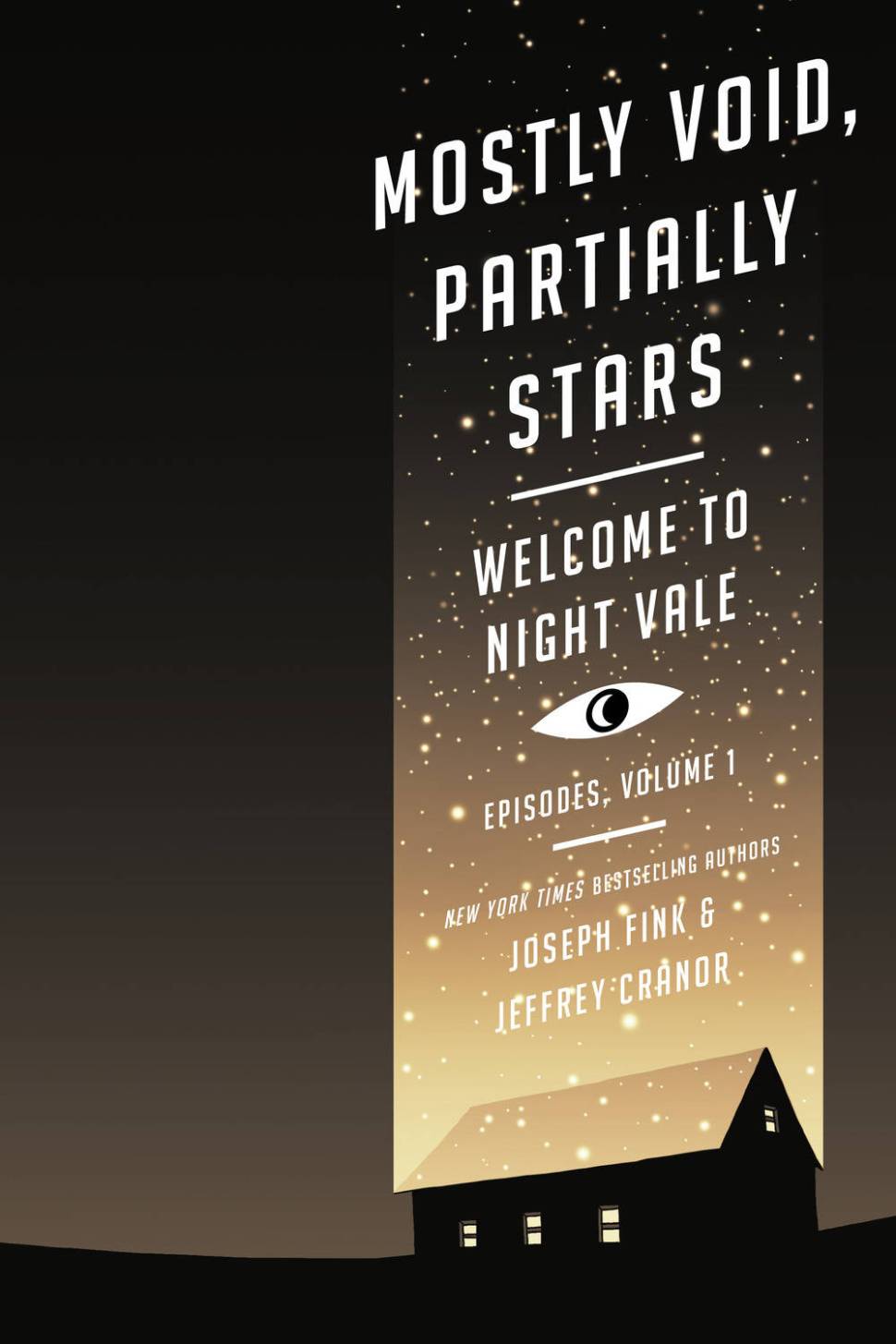
The new Night Vale books are filled with amazing, insightful forematter and marginalia, the story of each episode annotated by the writers, actors and production crew.
I was privileged to write the introduction to the first volume (Maureen Johnson wrote the intro to book two), and the folks at Harpercollins and Night Vale have kindly given permission for me to reprint it here.
Being weird and funny is easy. Being weird and funny and compelling is
hard.
We’ve all guffawed as some strange, surreal juxtaposition (“Two. One to hold the giraffe and the other to fill the bathtub with brightly colored machine tools”). You don’t have to be stoned to crack up at a friend’s
fantastic, perfect non-sequitur. Stories that inspire hilarity and
mystification are good fun, but they’re not great stories.
Stories become great by hacking your brain. Nothing that happens in
fiction matters. The people in fiction are fictional so their
triumphs and tragedies have literally no consequence. The death of the
yogurt you doomed to a fiery death in your gut-acid this morning is
infinitely more tragic than the “deaths” of Romeo and Juliette. The
yogurt was a alive and then it died. Romeo and Juliette never lived in
the first place.
Stories trick your naive, empathic mind into resonating in sympathy
(literally) with the plight of their imaginary people. Usually they do
this by scrupulously avoiding any reminder that these are imaginary
people. That “willing suspension of disbelief” is a bargain between the
creator and the audience: the creator tells the tale and hews to
something that is plausible (or at least consistent) and the audience
member doesn’t pinch herself and say, “Cut it out with the quickened
heart, the leaking tears, the smiles of triumph, you dope, this is all
made up!”
This makes weird stories and great stories nearly incompatible. A story
is a love affair on the last night of summer camp that depends on both
parties not calling attention to the fact that the camp bus is coming in
the morning, so they can pretend that the night could last forever.
Weird stuff happening to the characters is a reminder that this is all
made up, the ending is coming, and when it’s done, these invisible
people will disappear into the nonspace whence they came, so stop
cheering them on or crying for them.
Bringing me to Night Vale.
The remarkable thing about the people of Night Vale isn’t how delightfully weird they
are. The remarkable thing is how moving they are. Cranor and Fink and
co-writers and actors weave a world with haphazard internal consistency.
When things are weird, they make them weirder. It’s a good, meaty sort
of weird, steering clear of cliche and venturing into fresh, imaginative
territory — but it’s still undeniably weird.
It shouldn’t work. We shouldn’t root for Cecil, cheer on his love affair
with Carlos. Tamika Flynn and Intern Dana and even that guy with the
deerskin suitcase full of flies (whose story was so beautifully told in
the first Night Vale novel, a book that is, if anything even more
improbable than these podcast scripts) — they live through ridiculous
events but they react to them with perfect aplomb. They manage to trip
the empathic response that makes us care about their outcomes, despite
their outlandish lives.
This shouldn’t work. In theory, it shouldn’t work. Like Wikipedia and
many other marvels of the Internet age, Welcome to Night Vale only works
in practice. In theory, it’s a disaster.
I don’t know how the Night Vale writers pull this off. I suspect they
may be witches. I got some clues from reading the Night Vale
novel in which I learned that in the writers’ heads, these characters
have completely credible internal lives that treat their weird lives as
real. Somehow, though those internal lives usually stay internal in the
podcast (the difference between drama and prose is that in drama, you
only get what people say and do; in prose, you get what’s going on
inside their heads), they shine through the characters and their voices,
ensnaring our empathy.
The creators’ notes you’re about to read give a hint at how this alchemy
takes place. Usually reading how writers write (or even how actors act)
is like listening to stranger tell you about their boring dreams. Fink,
Cranor, and their collaborators make the stories behind these stories
fascinating, in part because of the light they shed on this most bizarre
phenomenon.
In short, there’s moving stories, there’s weird stories, and then,
there’s Night Vale. It’s weirdly moving. Be prepared. Be mystified. Be
delighted. Please don’t burn the authors at the stake for their sorcery,
no matter how tempting it may be.
-Cory Doctorow, Los Angeles, 2016
Mostly Void, Partially Stars: Welcome to Night Vale Episodes, Volume 1 [Joseph Fink and Jeffrey Cranor, foreword by Maureen Johnson/Harpercollins]
The Great Glowing Coils of the Universe: Welcome to Night Vale Episodes, Volume 2 [Joseph Fink and Jeffrey Cranor, foreword by Cory Doctorow/Harpercollins]
